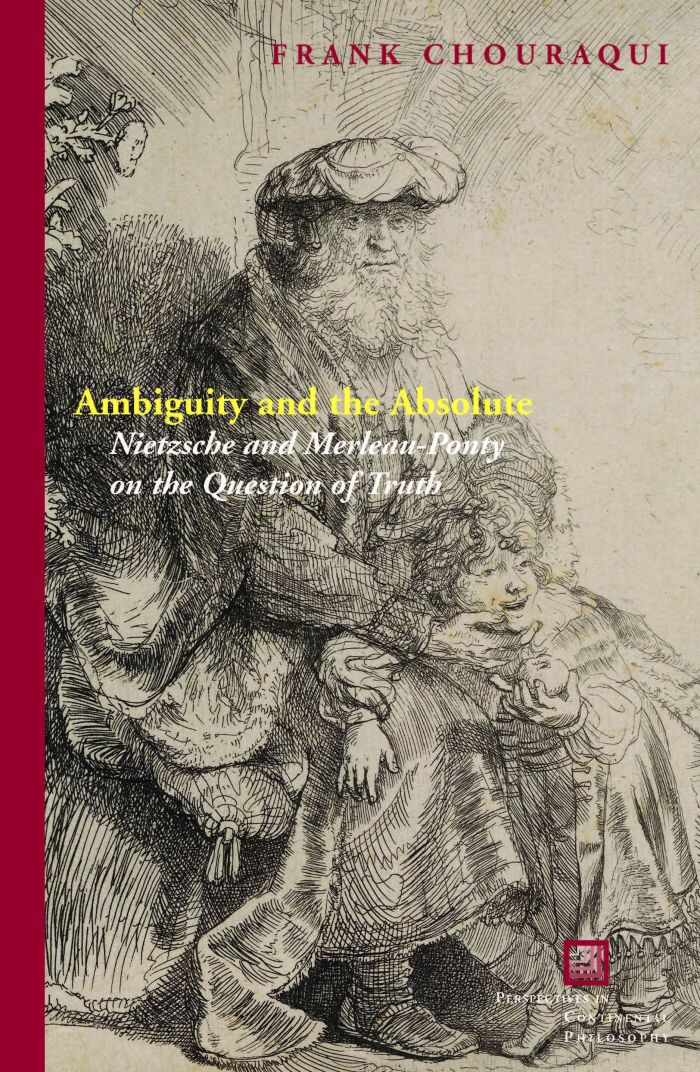Ambiguity and the Absolute
Nietzsche and Merleau-Ponty on the Question of Truth

This book can be opened with

Friedrich Nietzsche and Maurice Merleau-Ponty, Chouraqui argues, are linked by how they conceive the question of truth. Although both thinkers criticize the traditional concept of truth as objectivity, they both find that rejecting it does not solve the problem. What is it in our natural existence that gave rise to the notion of truth?
The answer to that question is threefold. First, Nietzsche and Merleau-Ponty both propose a genealogy of “truth” in which to exist means to make implicit truth claims. Second, both seek to recover the preobjective ground from which truth as an erroneous concept arose. Finally, this attempt at recovery leads both thinkers to ontological considerations regarding how we must conceive of a being whose structure allows for the existence of the belief in truth. In conclusion, Chouraqui suggests that both thinkers’ investigations of the question of truth lead them to conceive of being as the process of self-falsification by which indeterminate being presents itself as determinate.
Ambiguity and the Absolute is very stimulating and well-written throughout, and makes an important contribution to scholarship in Continental thought. Chouraqui has a masterful and sensitive understanding of the extensive and eclectic writings of both Nietzsche and Merleau-Ponty.——Duane Davis, University of North Carolina, Asheville
“The stakes are high in this elegant confrontation, dialogue, and ultimate convergence between Nietzsche and Merleau-Ponty on the questions of truth and being. Well argued, original, and grounded in deep scholarship, Chouraqui’s analysis and insistence upon the central ideas of becoming, self-differentiation, and falsification make a landmark and lasting contribution to phenomenological ontology and to philosophy in the environment of our times.”——Galen A. Johnson, University of Rhode Island
Frank Chouraqui must be congratulated. No one, until Chouraqui, has attempted to bring Merleau-Ponty and Nietzsche together. Chouraqui investigates each thinker in his own terms and context, without succumbing to anecdotal or linguistic similarities. Intentionality, and therefore phenomenology, is the hinge between the two thinkers. By placing intentionality at the center of their thinking, Chouraqui allows us to see philosophically significant connections between Nietzsche and Merleau-Ponty, but also connections between each of these thinkers and other figures. Chouraqui’s argumentation and interpretations are compelling and profound. Ambiguity and the Absolute is a great book.——Leonard Lawlor, Sparks Professor of Philosophy, Pennsylvania State University

